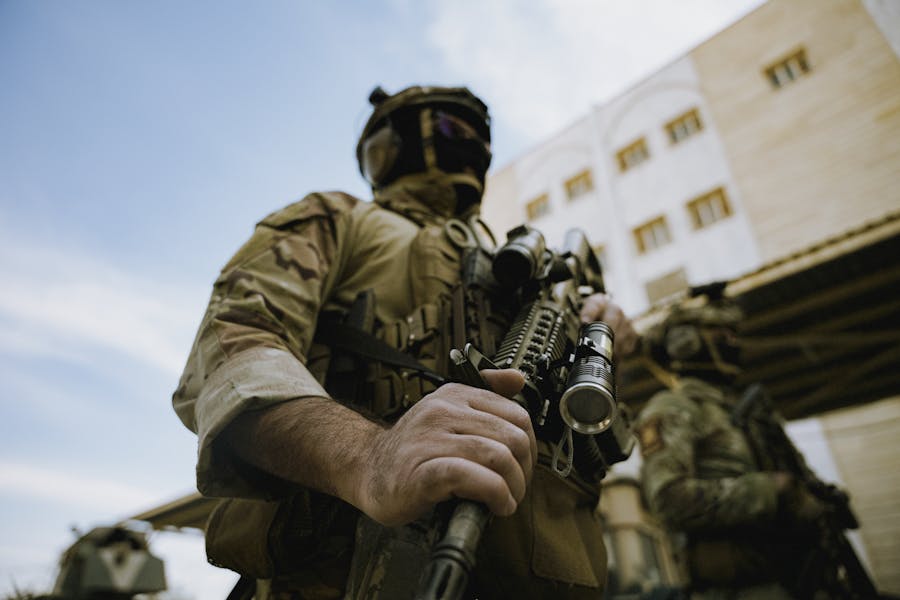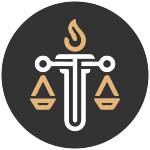
The concept of martial law sparks many questions, particularly regarding the authority and tenure of the president. Can a president stay in office during martial law? While martial law grants temporary emergency powers to military and government authorities, its impact on presidential power and term limits in the United States is complex. Many believe martial law could allow the president to extend their time in office, but constitutional limits and legal precedents play a crucial role.
Martial law is invoked during severe emergencies when civilian law enforcement is unable to maintain order. However, the U.S. Constitution does not explicitly define martial law or give any branch of government unrestricted control. This article explores the conditions under which martial law might be declared, its implications for presidential authority, and whether it affects the president’s ability to remain in office beyond their term.
Can a president stay in office during martial law?
The short answer is no, a president cannot stay in office beyond their constitutionally mandated term even if martial law is declared. Martial law grants the military temporary authority over civilian governance during emergencies, but the U.S. Constitution limits presidential power and terms. Congress and the judiciary provide checks and balances, preventing any unilateral extension of presidential tenure under martial law.
What Is Martial Law and How Does It Work?
Martial law is a temporary measure in which military authorities assume control over civilian functions during extreme emergencies. This may happen when civil unrest, natural disasters, or invasions make it impossible for local governments to maintain order. Under martial law, civil liberties such as habeas corpus (protection against unlawful detention) may be suspended. However, martial law is not a mechanism for long-term authoritarian rule.
In the United States, martial law can only be declared under extraordinary circumstances. Historically, instances of martial law include the Civil War and local crises like the 1930s unrest in some states. The U.S. Constitution, however, does not explicitly mention martial law, leaving much of its interpretation to courts and Congress.
Presidential power during martial law remains subject to checks and balances. Neither martial law nor emergency powers allow a president to remain in office beyond their elected term. Constitutional protections, including judicial oversight, ensure that power cannot be abused during crises. Therefore, despite the heightened powers granted to authorities, democratic institutions remain in place.
Can Martial Law Change Presidential Term Limits?
Constitutional Limits on Presidential Terms
The U.S. Constitution establishes clear limits on presidential terms through the 22nd Amendment. This amendment restricts presidents to serving a maximum of two elected terms or a total of ten years in office if they succeed to the presidency mid-term. Martial law does not grant the president the authority to override these constitutional provisions. Even in extreme emergencies, term limits remain legally binding. The democratic process, including scheduled elections and transitions of power, must proceed according to constitutional requirements, regardless of any temporary imposition of martial law.
Checks and Balances on Martial Law
The U.S. system of government is built on a framework of checks and balances, which applies even during periods of martial law. Congress plays a crucial role in overseeing the use of martial law and regulating the scope of presidential emergency powers. It has the authority to revoke or modify martial law declarations if they exceed constitutional boundaries. Similarly, the judiciary serves as a legal safeguard, with courts empowered to review and block unlawful or excessive use of martial law. Judicial intervention ensures that constitutional rights, such as due process and protection from arbitrary detention, are not suspended without justification.
Historical Precedents and Martial Law
Throughout U.S. history, martial law has been declared in specific, limited circumstances, such as during the Civil War and local crises like riots or natural disasters. However, there is no historical precedent where martial law has been used to extend a president’s term in office. In all instances, democratic processes, including elections and the peaceful transfer of power, have continued despite the temporary imposition of martial law. This historical consistency underscores the constitutional safeguards that prevent any president from using martial law to retain power beyond their legal term.
Emergency Powers vs. Martial Law
It is essential to distinguish between emergency powers and martial law, as the two are often misunderstood. Emergency powers allow presidents to take immediate action by issuing executive orders during national crises. However, these powers are still subject to constitutional limits and congressional oversight. Martial law, by contrast, involves the temporary delegation of authority to the military to maintain order in extreme situations. This does not expand presidential control but rather shifts certain functions to military leaders under civilian oversight. Both emergency powers and martial law are designed to address crises while preserving constitutional principles.
Key Implications of Martial Law for Presidential Authority
Martial law does not grant the president unrestricted power. Several key factors act as checks to ensure that the executive branch adheres to legal and constitutional boundaries during such situations. These factors help maintain a balance of power and prevent potential abuses of authority.
- Constitutional Constraints: The U.S. Constitution imposes strict limits on presidential authority, even under martial law. The president cannot override constitutional provisions, such as term limits or scheduled elections. Martial law does not grant the president the power to extend their time in office or bypass the democratic process. Any attempt to suspend or undermine constitutional mandates would face legal challenges and resistance from other branches of government.
- Military Oversight: While the military assumes control of certain functions during martial law, it does so under civilian authority. The military does not possess the power to alter political structures or extend the president’s term. Its role is limited to restoring order, enforcing temporary regulations, and assisting in emergency situations. Military leaders remain accountable to civilian leadership and constitutional law, ensuring that martial law does not evolve into military rule.
- Judicial Oversight: The judiciary serves as a critical safeguard against potential executive overreach during martial law. Courts have the authority to review and challenge any actions that violate constitutional rights or legal standards. For example, courts may strike down orders that unlawfully suspend civil liberties, such as freedom of speech or protection from arbitrary detention. This judicial oversight ensures that martial law declarations are legally justified and do not infringe on fundamental rights.
- Legislative Review: Congress holds the power to regulate and limit the use of martial law. Through legislative action, Congress can revoke or modify martial law declarations if it determines that the president has exceeded their authority. This oversight function prevents the executive branch from consolidating power without accountability. Congress may also set parameters for how long martial law can remain in effect and under what conditions it can be renewed or expanded.
When and Why Is Martial Law Declared?
Martial law is declared in rare circumstances where civilian law enforcement is unable to maintain peace and order. Common scenarios include:
- Civil Unrest: Martial law may be declared during widespread riots or protests that overwhelm local police forces.
- Natural Disasters: Extreme events like hurricanes or earthquakes could lead to martial law if public safety becomes unmanageable.
- Foreign Invasion or Attack: In cases of war or direct attacks on U.S. soil, martial law may temporarily shift authority to military commanders.
- Insurrections or Coups: If the stability of government institutions is under threat, martial law could be imposed to restore order.
While these situations require swift responses, they do not grant long-term executive control. The president must follow constitutional procedures and collaborate with other branches of government to uphold democratic norms.
Can Martial Law Be Declared by the President Alone?
Presidential Authority to Declare Martial Law
The president has the power to declare martial law during national emergencies, particularly when the country’s security is at serious risk. This authority allows the temporary transfer of control from civilian institutions to military forces to restore law and order. However, while the president can initiate martial law under urgent circumstances, this authority is not absolute. Legal and constitutional limits are in place to prevent the misuse of such powers. The scope and duration of martial law declared by the president are subject to scrutiny and potential intervention by other branches of government.
Role of Congress in Regulating Martial Law
Congress plays a crucial role in overseeing and regulating martial law. Although the president can declare it, Congress holds the authority to modify or revoke martial law through legislative measures. Additionally, Congress often establishes legal frameworks that dictate how martial law should be implemented and under what conditions. Prolonged or widespread declarations of martial law typically require congressional approval to continue, ensuring that no single branch of government holds unchecked control over civil and military operations. This legislative oversight serves as a critical check on executive power during times of national crisis.
Judicial Intervention and Constitutional Rights
The judiciary also serves as a guardian of constitutional rights during the imposition of martial law. Courts have intervened in past cases to ensure that the suspension of certain civil liberties, such as habeas corpus, does not violate fundamental legal principles. Judges emphasize that constitutional protections cannot be indefinitely suspended, even during emergencies. Judicial review ensures that the president’s actions align with established legal standards and do not infringe upon individual rights without just cause. Through this oversight, the courts maintain a balance between national security needs and the preservation of democratic freedoms.
Checks and Balances on Martial Law Declarations
The president’s ability to declare martial law is balanced by the collaborative roles of Congress and the judiciary. These checks and balances are essential to maintaining the rule of law and preventing the concentration of power in the executive branch. While the president may act swiftly in emergencies, the legislative and judicial branches ensure that martial law adheres to democratic principles and constitutional limits. This cooperation among the branches of government helps safeguard both national security and civil liberties.
In Closing
In summary, can a president stay in office during martial law? The answer is no. The U.S. Constitution and democratic safeguards prevent any president from extending their term through martial law. While martial law grants temporary emergency powers, it does not override constitutional limits on presidential tenure. Historical precedents and legal frameworks emphasize the importance of checks and balances, ensuring that crises do not lead to authoritarian rule.
FAQ’s
1. Can a U.S. president declare martial law?
Yes, a president can declare martial law during extreme emergencies, but their authority is subject to checks by Congress and the courts.
2. Does martial law suspend the Constitution?
No, martial law does not suspend the entire Constitution. Some civil liberties may be temporarily restricted, but constitutional oversight remains.
3. Can martial law extend a president’s term?
No, the 22nd Amendment limits presidential terms. Martial law does not grant authority to bypass these constitutional limits.
4. Has martial law ever been declared in the U.S.?
Yes, martial law has been declared in localized situations, such as during the Civil War and in response to natural disasters or civil unrest.
5. What rights are affected under martial law?
Under martial law, rights like habeas corpus may be suspended, but courts can intervene to protect fundamental constitutional rights.
